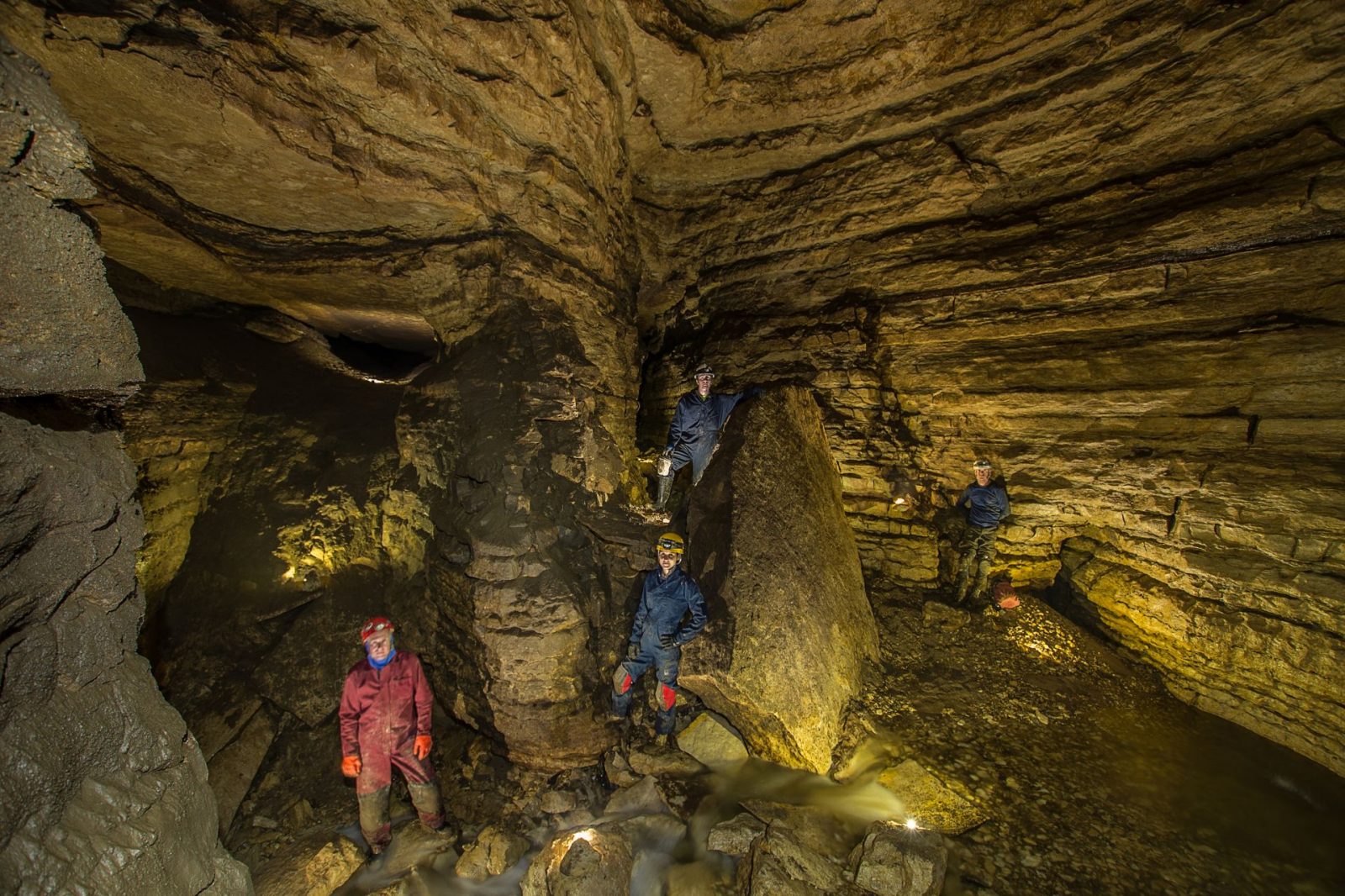HARMONY, Minn. — The intersection of soil-building farming practices, water movement and karst geology will be the focus of a special Land Stewardship Project (LSP) “Farming in Karst Country” workshop Wednesday, July 6, from 4 p.m. to 8 p.m., at Niagara Cave in Harmony (29842 Co. Hwy. 30). The cost to attend is $20 for adults and $10 for people under 16; the fee covers a cave tour* and dinner from True Smoke BBQ. Space is limited to 75 participants. To reserve your spot, contact LSP’s Maura Curry at 651-249-6308 or mcurry@landstewardshipproject.org, or visit bit.ly/LSPCaveTour.
Directions: Heading south on U.S. 52 into Harmony, take a right onto MN-139 and continue to head south for three miles, then turn right again onto County Road 30. After two miles, the cave will be on your left; look for “Niagara Cave” and “LSP” signs.
Presenters will include farmers, cavers, naturalists and Kernza researchers sharing how practices like no-till, cover cropping and perennial cover can improve the health of the soil and underground streams.
Local crop farmer Martin Larsen will share his insights on practices like no-till and cover cropping. Larsen works for the Olmsted County Soil and Water Conservation District and is the vice president of the Minnesota Caving Club.
“Soil, water, farming and our Karst geology are intricately connected and produce the freshwater streams, plant diversity and unique landscape of the Driftless Region,” said Larsen. “Improving the health of our soils will help maintain the integrity of our agricultural production, groundwater and unique region.”
Will Varela will speak on the geology of the area and how water quality affects our fish habitat. Varela works as an interpretive naturalist at Mystery Cave and is pursuing a doctorate in riverine ecosystem form and function at the University of New England Armidale. Aaron Bishop and his family have stewarded the Niagara Cave system since 1995, hosting hundreds of thousands of visitors over the years. Bishop will share his knowledge and observations of underground water movement, water quality and the changes his family has seen in the cave over the past 25 years, especially in relation to extreme weather events.
For information on other LSP soil health workshops and field days being held in the region this summer, see landstewardshipproject.org.
*Note that this will be a physically active field day with a topside walking tour and a cave tour that includes 550 stair steps and a mile walk in a humid environment. The cave tour is not recommended for people with heart or respiratory conditions.
-30-
